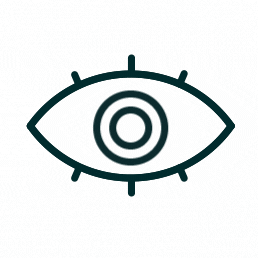Maïder Fortuné and Annie MacDonell
Shadow Vision
Curator: France Choinière
From November 13, 2025 to January 17, 2026
Opening on November 13 at 6 pm
The works of Maïder Fortuné and Annie MacDonell unfold as an inquiry into transcendence, open yet lucid, that is expressed both formally and intellectually. In their collaborative and individual works, art and life–from a feminist perspective–are put into dialogue in such a way that personal experience is made the groundwork for imagining alternative, at times radical forms of existence, learning, and perception. Their close and repeated collaborations, their synthesis of ideas and imagination, embody a desire to sketch new outlines of the Self, which rethinks our relationships to others and to community and intonates that herein lies a pathway to understanding the world differently while sidestepping institutional precepts.
Psychedelic and/or ecstatic experiences that edge on the Sublime recur throughout their works as themes and motifs, serving to examine various states of consciousness and to shake up or overturn the accepted limits of multiple norms: social, economic, political, narrative, visual, and formal. While within their work narrative and image make up an inseparable whole, possibility takes its full expression in the subjectivity specific to each form, in a sense, in the margin of flaw brought by the ambiguity and ubiquity of the subject matter.
Without imparting a catastrophized worldview, Fortuné and MacDonell suggest that an emptying, a feeling of finality, can sometimes offer relief, boding for the better.
- F.C.
Maïder Fortuné and Annie MacDonell
One Equal Light (2025)
15 min
Composed of found, manipulated, and computer-generated content– enabling Derrida to mingle with the 17th-century poet and priest John Donne, or poetry to weave its way into a string of news broadcasts–Fortuné and MacDonell’s most recent film dilates the thresholds of unlikely encounters between subjects from distant temporalities, between the perceived and the illusory, and between terrestrial and cosmological elements, apprehending the world as a totality. Centring the eclipse as a motif and the axis of such notions, the artists assemble narratives and depictions of the phenomenon, from the most recent, in 2024, and as far back as Antiquity. Arousing collective fascination verging on mystical marvel and an anxiety-inducing anticipation of chaos, the eclipse seems to symbolize a breaking point wherein the present becomes absent, too unbearable, but in which we recognize a past and hope for a future. In these times, when it is particularly difficult to turn towards something brighter, Fortuné and MacDonell’s work invites us to do so.
Maïder Fortuné and Annie MacDonell
OUTHERE (for Lee Lozano) (2021)
32 min
In 1971, painter and conceptual artist Lee Lozano gave a presentation titled “The Halifax 3 State Experiment” at NSCAD (Nova Scotia College of Art and Design), a Canadian university internationally recognized at the time as a vanguard art school. Beginning at 10 a.m. and ending at sunset, Lozano’s presentation was given in three consecutive states of being: sober, stoned on marijuana, then, finally, high on LSD. Though documentation of the event is limited to a few time-stamped images and audio recordings, Fortuné and MacDonell follow the meandering, elliptical elements of Lozano’s presentation, looking for clues or insights into this enigmatic artist who sought a total revolution in life and art with few boundaries between the two. Using archival notes and photos, observational analyses, performance, and even an astrological reading, OUTHERE (for Lee Lozano) manifests new image forms, coalescing fragments of what is gone and past.
Maïder Fortuné and Annie MacDonell
Communicating Vessels (2020)
31 min
The title of this short film, Communicating Vessels, refers to the process of water levelling out when it’s shared across conjoined receptacles. Here, the phenomenon draws a template for intangible intergenerational transmissions embodied in art and motherhood. It is likewise written into a narrative about E., a brash but brilliant outlier amongst her art college peers. Recounted by her film teacher, the confluence of one upon the other is palpable. The simple but profound, affectless but felt films by E., themselves a call and response to seminal conceptual artworks from the 1970s, are restaged by Fortuné and MacDonell with the collaborative presence of performers. The filmed images, also capturing the filmmakers, intermingle in transparent layers, binding the women in their processes of creation and making.
Annie MacDonell
Ego Death Trip (2021)
Lenticular chromogenic print mounted on aluminum
The image featured in Ego Death Trip was originally published in the Toronto Star in 1967. In line with the times, it showed a young woman nonchalantly sinking into a sofa, her head drooping, curled in on herself, and visibly “tripping” on psychedelics. Completely reconfigured by MacDonell, the image is repeated and segmented, recalling lenticular techniques, and giving an illusion of movement or the silhouette in evolution. While the young woman appears to be at least physically inert (we can presume that in her mind there is an onslaught of reality-shifting activity), form and meaning are chiefly gained when the viewer walks the image’s complete 4.5 meters.
Annie MacDonell
Set and Setting (2020)
Two-channel video, 7 min 49 s
LSO 25 protocols (2020)
Digital prints on paper, highlighter
A continued inquiry into psychedelic expansions of Self and the death of ego, MacDonell’s two-channel film, Set and Setting, takes as a starting point representations of hallucinogenic psychiatry or psychedelic therapy, an experimental treatment for mental health that began in the 1950s and continues to this day. Animated illustrations of clinical trials are spliced with flashing celestial and sacred iconography. Similarly, with LSO 25 Protocols, a mural of trial reports presents as a kind of expanded documentation, both methodical and slippery in nature. Collective consciousness and individual subjectivity come together to posit potential models for togetherness, a self beyond self.
Maïder Fortuné
The yellow blind (2015)
7 min
The yellow blind is a transmutation into images and words of a childhood memory shared by two sisters. Bringing together literature and painting, the film recounts an ecstatic moment that permeated the lives and art of these women while also speaking to their unique connection. The yellow blind combines excerpts from Virginia Woolf’s Moments of Being and filmed footage of a painting entitled Abstract Painting by Vanessa Bell at London’s Tate Modern. Through a series of monochromatic frames, Fortuné crystallizes the ubiquity of memory, giving colour to words and words to colour.
Maïder Fortuné is an artist and filmmaker. Committed to a certain formal rigor, her film work draws the viewer's attention to a genuine encounter with the image and its processes. She sees film as a critical tool capable of opening up contemporary representations into new formalities. Her work has been presented in exhibitions in France and abroad and is included in numerous French public and private institutions (Centre Pompidou, CNAP, FNAC, FRAC, Musée de la chasse). In 2011, she was a resident at the Villa Medicis in Rome. Since 2015, she has been collaborating with Annie MacDonell on projects that place emphasis on narrative as form, feminism as lived politics, art practice and radical pedagogy, and the ways in which language and image shape each other. Their film Communicating Vessels won awards at the Rotterdam Film Festival and the Moscow Experimental Film Festival in 2020. OUTHERE (for Lee Lozano) was part of the 2021 Rotterdam Film Festival. Her latest film, Boomerang, was presented at the European Media Art Festival, FID Marseille, and the Villa Medici Festival in Rome.
Annie MacDonell is a visual artist and filmmaker. Her formal training in photography and the image continues to play a central role in her projects, which also employ installation, film, sculpture, writing, and performance. She received a BFA from Toronto Metropolitan University's School of Image Arts in 2000, followed by graduate studies at Le Fresnoy, Studio National des Arts Contemporains, in France. Recent solo exhibitions have been presented at the Audain Gallery SFU, Kitchener Waterloo Art Gallery, the Robert McLaughlin Gallery, Oshawa, Illingworth Kerr Gallery, and the Mackenzie Art Gallery. She has participated in group shows at The Art Museum of the University of Toronto, Contemporary Art Gallery Vancouver and Mackenzie Art Gallery. Recent performances have been presented at Nuit Blanche Toronto, le Centre Pompidou and the Toronto International Film Festival. In 2020, she was shortlisted for the Scotiabank Photography Award. Also in 2020, she and Maïder Fortuné won the Tiger Short Award at the International Film Festival Rotterdam, for their film Communicating Vessels. Annie MacDonell is an Associate Professor at TMU’s School of Image Arts. She is a founding member of Emilia Amalia, a feminist research and writing group.
Outreach
Meet the artist
On November 13, 2025 at 5 pm
Artist Annie MacDonell will join curator France Choinière for a conversation. This is a unique opportunity to discover the works in the presence of the artist!
Other exhibition
Callum Hill
E-Minor
From November 13, 2025, to January 17, 2026
Dazibao thanks the artists for their generous collaboration as well as its advisory committee for their support.
Dazibao receives financial support from the Conseil des arts et des lettres du Québec, the Canada Council for the Arts, the Conseil des arts de Montréal, the ministère de la Culture et des Communications and the Ville de Montréal.
Dazibao acknowledges that it is located on the unceded territory of the Kanien'kehá: ka Nation and that Tiohtiá:ke / Montreal is historically known as a gathering place for many First Nations, and today, is home to a diverse population of Indigenous as well as other peoples. Guided by ethics of respect, listening, and awareness, Dazibao commits to a continued reflection regarding the deep-rooted and systemic challenges tied to accessibility and inclusivity in the arts and beyond, and endeavors to apply such reflections to all aspects of its activities and governance.














